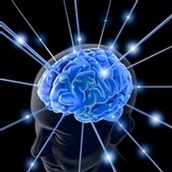Older people encouraged to switch from TV to radio to maintain brain function

Ahead of Brain Awareness Week (BAW) awareness week, a cognitive neuroscientist has urged older people to switch off TV sets and listen to the radio more to maintain their brain function.
Dr Lynda Shaw, who is also a chartered psychologist said: “Watching too much TV can dull brain programming. Instead why not put on your favourite playlist and turn the music up! Research shows that music can lower stress hormones that impede memory and increase feelings of well-being.”
A large number of universities, hospitals and neuroscience specialists will be carrying out a range of events next week in recognition of the 20th annual Brain Awareness Week (BAW).
BAW celebrates neuroscientific research and aims to educate the general public about the progress being made by scientists carrying out brain research.
Events such as lab tours, film presentations and online resources will be available to the public which have been created by neuroscience experts, who will show people the many aspects of the brain and its functions.
The awareness week was founded and is coordinated by the Dana Foundation, the Dana Alliance for Brain Initiatives and the European Dana Alliance for the Brain, organisations that support brain research through grants, publications and educational programmes.
Dr Shaw continued: “Whether it be facing your fears and holding a large spider or learning a new language just give it a try! Activities which are testing or complicated help towards having a healthy brain.
“Revamp your house by de-cluttering, this will lead to de-stressing and mental space for creativity and renewal.
“When was the last time you tried to write with your weaker hand? Doing day-to-day activities with your ‘other’ hand can drive your brain to make positive changes as it requires the brain to pay close attention to a normally unconscious behaviour.
“Ensure that you spend enough happy time with friends and your family, as socialising provides opportunities to enable the sharing of experiences, challenges, emotions, trust, and understanding. Research shows that people with five or more regular social ties had half the risk of cognitive decline than those with no social ties.”
To find out more about BAW please visit: https://www.bna.org.uk/events/view.php?permalink=LSFNQ12UE9
Latest News
 29-Jul-24
Dementia Bus gives carehome.co.uk staff insight into life with dementia
29-Jul-24
Dementia Bus gives carehome.co.uk staff insight into life with dementia
 27-Jul-23
UK's top home care agencies in 2023 revealed
27-Jul-23
UK's top home care agencies in 2023 revealed
 30-Nov-22
A quarter of older people keep their falls secret from family
30-Nov-22
A quarter of older people keep their falls secret from family
 29-Nov-22
'Covid-19 has not gone away' say terminally ill
29-Nov-22
'Covid-19 has not gone away' say terminally ill
 28-Nov-22
IT consultant who received poor care opens 'compassionate' home care business
28-Nov-22
IT consultant who received poor care opens 'compassionate' home care business